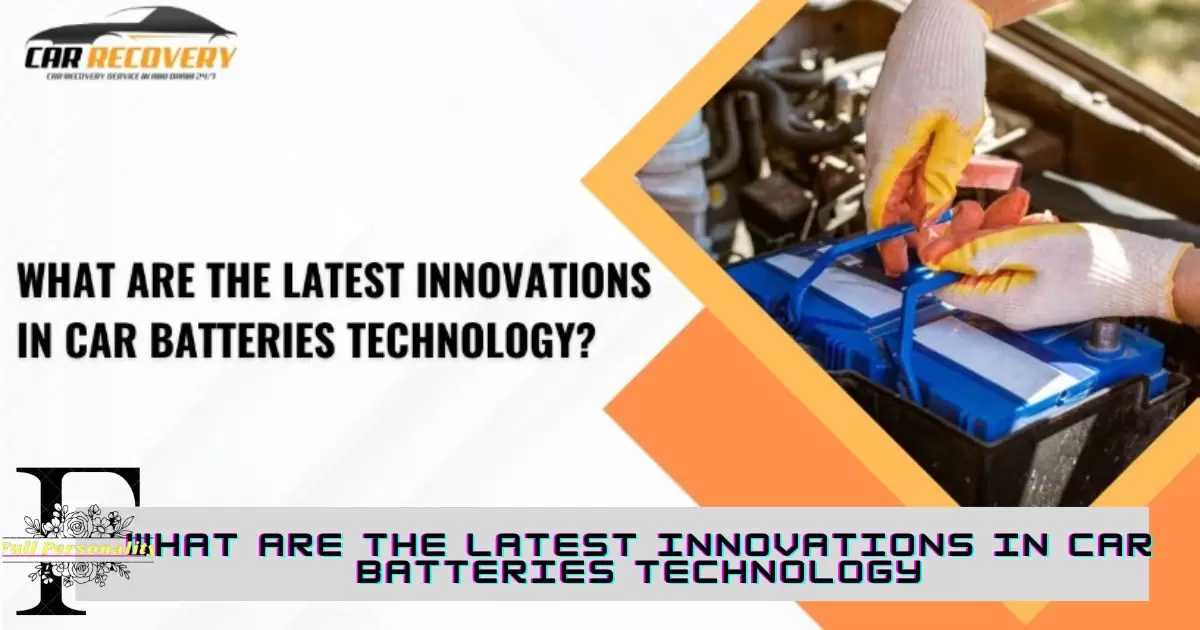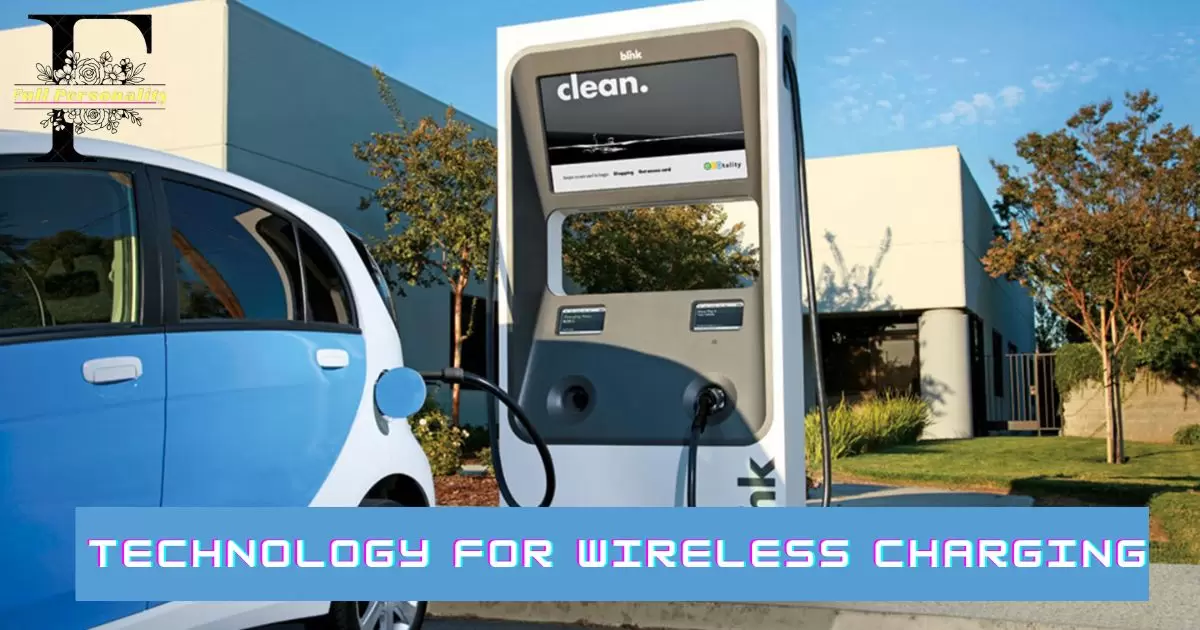Transformations abound in the car industry because people want cleaner energy as well as more fuel-efficient cars. There have been remarkable advances made when it comes to how vehicles store energy at precision ranges above what electricity packs could ever contain.
Nowadays, the Latest Innovations in Car Batteries are not just about designing batteries that can hold a lot of current; they also emphasize longevity, safeness, and pollution reduction. Moreover, these advancements are reshaping transport developments by setting new trends in automotive idle systems and car battery replacement.
The Rise Of Solid-State Batteries
The leading discussion about progress in automotive battery technology revolves around solid-state batteries. They use a solid electrolyte instead of liquid-ion batteries and have numerous advantages over them.
For starters, they are far less risky than those utilizing liquid electrolytes because there is no chance of leakage or ignition. Moreover, they can store more energy per unit volume because of their greater energy densities. For electric vehicles, this means longer driving ranges.
In addition, solid-state batteries are expected to greatly cut down on charging times. So, the researchers are still looking for other alternatives in this area, but the other major players in the auto industry such as Toyota and BMW have heavily invested in research on solid-state batteries. Therefore, these kinds of batteries should be seen shortly in electric cars completely changing the face of that market.
The Evolution Of Lithium-Ion Batteries
Coalition of Battery Manufacturers has therefore discovered the following issues regarding Lithium Ion batteries which continue to bother them while Solid State batteries have not yet been realized.
You may want to Read: https //www.microsoft.com /ink – The ultimate guide
Nevertheless, to improve efficiency on Li-ion batteries for instance researchers use silicon anodes as opposed to common graphite ones. By replacing graphite with silicon, these batteries could achieve roughly ten times the amount of lithium ions, resulting in significantly greater energy density.
Solid-state batteries are a hope of our world while lithium-ion batteries hold sway over the current electrical devices. Nevertheless, there is a need to improve them. Research into lithium-ion battery performance improvement never comes to an end.
In this aspect, one of the great innovations is the application of silicon anodes instead of regular graphite ones. The energy storage capacity is increased significantly since silicon has more than ten times the number of lithium ions than other substances found in conventional batteries.
One problem with silicon is its tendency to expand and contract. This expansion leads to battery degradation. Researchers have suggested solutions using silicon nanowires. These nanowires tolerate volume changes better. Some silicon composites also offer improved stability.
These advancements extend the battery’s lifespan. Henceforth, it is predictable that future variations of lithium-ion batteries will be more durable during frequent charge-discharge cycles.
Fast-Charging Technology
In the field of the latest innovations in car batteries, rapid recharging has been one more key area for development. I mean, the main barrier for electric vehicles inside the society of general use has been battery charging. Nevertheless, there are novel technologies underway that may change this.
You may want to Read: Ark: Survival Evolved (2017) Game Icons Banners
Extremely rapid charging is an example of it (XFC). This technique reduces the charging duration to less than fifteen minutes. The effective materials used in batteries help to achieve high-speed charging techniques and keep everything safe.
It serves as a safety measure during this process too with its efficient cooling mechanism. In addition, electric car manufacturers like Tesla have also developed “supercharger” networks which provide electric vehicles with quicker battery recharging times. It simplifies life for drivers who cruise over long distances using electric cars.
The Development Of Recycled Batteries
Electric vehicles are increasing on our roads. Concerns about battery disposal are growing. Traditional car batteries contain harmful components. Proper disposal is crucial for environmental safety. Therefore, the Latest Innovations in Car Battery technology have also focused on advancements in battery recycling technologies.
For instance, they extract used materials from batteries that can be charged again and take back valuable metals such as lithium, cobalt, or nickel; these metals are then put into production on new batteries again.
So far, Redwood Materials and Li-Cycle are among the leaders in research on ways to recycle batteries effectively. The companies thus create systems that allow reuse and retrieval of almost 100% of the parts of any battery leading to reduction of waste and less demand for virgin materials.
The Utilization Of AI in Managing Batteries
Man-made minds are forcing their entry into nearly all fields, even car battery technology. The innovative kind of battery management systems (BMS) that become more complex with Artificial Intelligence (AI) have enabled car batteries to last longer in use as well as lifespan.
You may want to Read: AIOtechnical.com Computer: Everything You Need To Know 2024
A battery management system (BMS) is responsible for constant monitoring of battery charge, temperature, and overall condition of battery health. These devices use AI to predict when a battery might fail or need maintenance. By taking this approach ahead of time, it is possible to prolong the lifespan of the battery and reduce the chances of sudden failures.
On top of that, AI can enhance the charging process by learning a driver’s patterns and modifying the charging schedules accordingly.
For instance, if a driver normally charges their car at night, AI can ensure that the battery gets charged at a slower rate to preserve its life. This kind of innovation helps increase electric vehicles’ overall efficiency and sustainability in addition to improving the user experience.
Technology For Wireless Charging
Consider the possibility of never having to manually recharge your electric vehicle again. Thanks to the most recent advancements in battery technology for vehicles, this is now achievable through wireless charging. A station installed on the ground sends power via electromagnetic fields to a receiver found in the automobile. Simply park above the charging pad and it will automatically recharge itself.
Currently, wireless charging is still very much at its nascent stage but it has a lot of promise. Cumbersome cords may become obsolete as a result of this development thus making convenience more achievable when charging.
Furthermore, technological advances and innovations in battery systems could result in dynamic charging. This will permit electric cars to recharge while being driven on specifically designed roads.
The Push For Sustainability In Battery Production
The latest Innovations in Car Battery technology used in cars have made sustainability their major concern. Mining lithium, cobalt, and nickel for batteries causes significant ecological and social repercussions. Therefore, scientists as well as corporations are exploring alternative materials and more sustainable mining methods.
Innovators have developed lithium-sulfur batteries. Cobalt is limited, but sulfur is abundant. Sulfur has fewer adverse effects on water resources. With an increased energy density, lithium-sulfur batteries promise extended driving ranges for EVS. Yet at present, they encounter challenges concerning their durability and stability, which specialists are working on.
One more method is to make use of recycled materials in the construction of batteries. Previously, experts stated that battery recycling is improving. Materials from old batteries can be reused in new ones. This reduces the need for raw materials and lessens the environmental impact of battery production.
Conclusion
Experts have not optimally paid sufficient attention to modifications and the latest Innovations in Car Batteries. These modifications touch on lifespan, battery recharge time, weight, and size. Latest innovations in automobile batteries enhance electric vehicles’ appeal to buyers.
For instance, there have been breakthroughs in battery designs spurred by fast-changing technologies and solid-state batteries. Moreover, battery monitoring technologies driven by artificial intelligence are proving instrumental in conserving energy for transportation purposes. Finally, it’s noteworthy that wireless charging technologies make vehicle operation easier and less hassle-free.
With these advancements, electric cars could now become more affordable than ever with longer ranges per charge; reduced refueling times; and minimal harm to the ecosystem. Certainly, there has always been a prospect about the future of auto battery technology as innovations keep springing up like for instance battery replacement for automobiles or the newest batteries for sale within Abu Dhabi.

Hello, I’m Andria Brown, the founder of Full Personality. With a background in SEO and three years of experience, I’ve always been fascinated by the ever-changing world of blogging. Full Personality is my platform to delve into the future of blogging. When not exploring tech trends, I focus on SEO and SERPs. I believe in building a community that shares ideas and stays ahead in innovation. Join me on this exciting journey!



